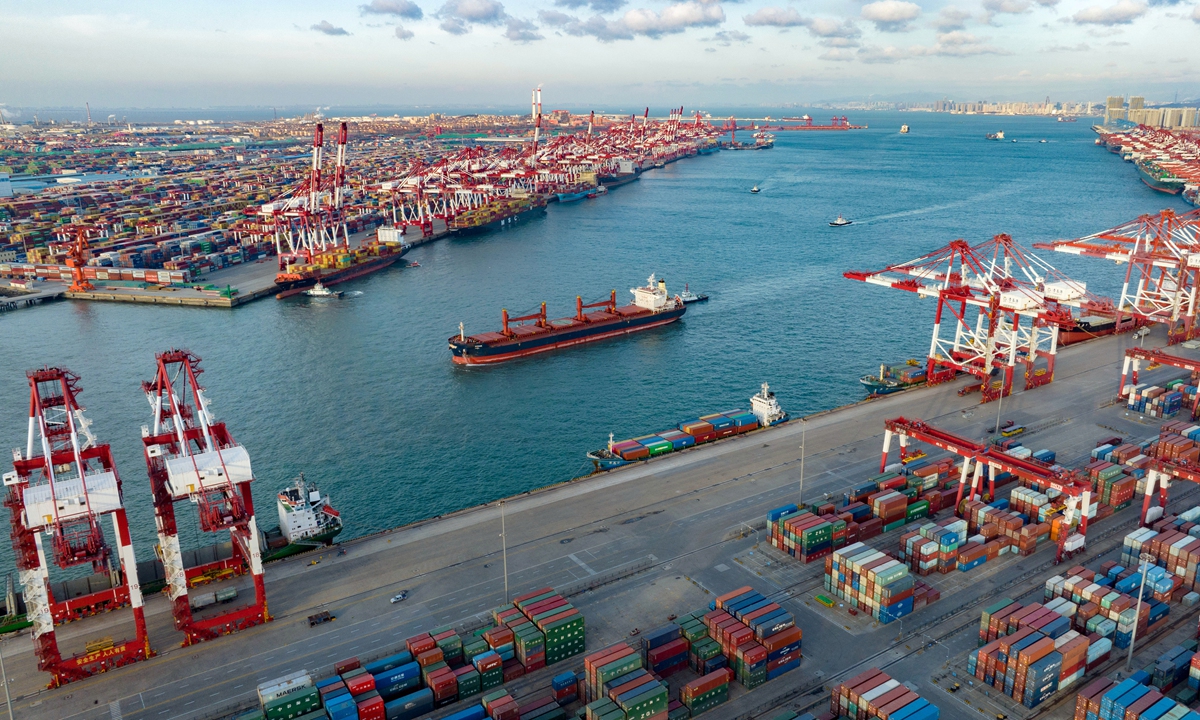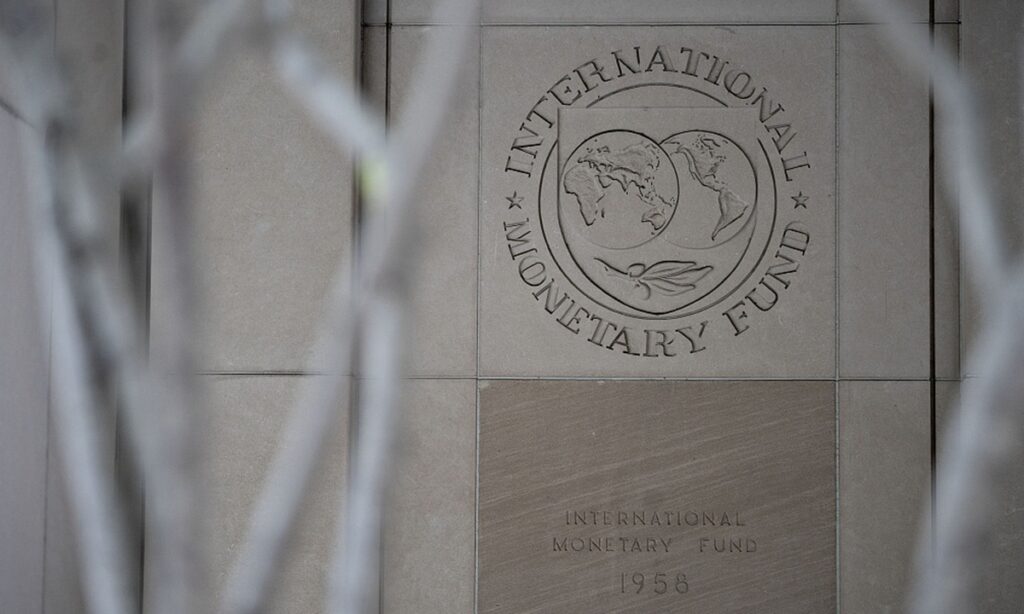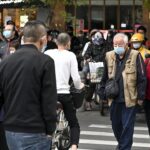Leaders of several major international economic organizations have warned against the negative impact of deglobalization, as the global community increasingly reaches consensus on the economic harm caused by the protectionist policies adopted by the US and some of its allies and on the need to uphold free trade, in which China plays a paramount role.
In a stark contrast to the US unilateral and protectionist trade policies that have caused serious global problems, including surging inflation, disrupted global supply chains and chaotic financial markets, and shaken the foundations of international free trade system, China has been persistently promoting free trade and continues to play a paramount role in upholding the global multilateral trade system, experts said.
Leaders from the IMF and WTO warned that the trend of deglobalization is exerting a negative influence on the global economy, according to a Reuters report on Wednesday.
“Don’t throw the baby out with the bathwater,” IMF Managing Director Kristalina Georgieva was quoted as saying, a metaphor she used to warn against protectionism.
She also predicted that about one-third of the world economy would slide into recession in 2023.
Her view was supported by WTO Director-General Ngozi Okonjo-Iweala, who said that breaking the world economy into two trading blocs would reduce global GDP by 5 percent in the longer term.
“Retreating from trade, being protectionist will make it harder – not easier – to solve the problems we have now,” Okonjo-Iweala said.
Although they didn’t explicitly mention which countries were involved in breaking the global economy into trading blocs, it was quite evident what they meant, considering the differences of policy direction between the circle of US-led Western countries and China, experts said.
“The US was once an active promoter of the establishment of the WTO as an international platform, but now it has become a threat to it. This shows that Washington only upholds systems that are in line with its own interests,” Cong Yi, dean of the School of Marxism at the Tianjin University of Finance and Economics, told the Global Times.
Chen Jia, an independent international strategy analyst, said that Georgieva’s comments on supporting globalization, coming after her meeting with German Chancellor Olaf Scholz, represented a kind of criticism of anti-globalization trend, including some German politicians’ unilateralism and thinking on decoupling with China.
The world organizations’ leaders are expressing worries about the negative economic impact of arbitrary decoupling and protectionism.
In particular, experts have called the US a “culprit” behind the current anti-globalization trend by constantly rolling out decoupling measures against China and other countries.
“The general policy direction of the recent two US administrations is the same: the Biden administration seems to be easing on the trade and diplomatic side, but it strengthens protectionism in industrial chain competition,” Chen told the Global Times.
More countries and international communities are realizing the problems of such a policy direction and starting to have differences with the US, including some countries that used to be US allies.
For instance, both Japan and South Korea have shown a reluctant attitude toward US calls for a chip alliance to exclude China. European Internal Market Commissioner Thierry Breton also said recently that the EU will take action on new US subsidies to protect European competitiveness, Reuters noted.
Several European politicians have signaled recently that they will not follow the US policy of seeking a decoupling with China.
Dutch Foreign Trade Minister Liesje Schreinemacher was quoted by Bloomberg as saying that the Netherlands will make its own decision regarding ASML’s chip gear sales to China amid trade rule talks with the US, stressing it’s important to defend the country’s “economic interests” along with national safety.
Likewise, Scholz, who paid a visit to China in early November, is not in favor of decoupling from China either. While meeting Chinese top leader in Beijing during the visit, Scholz said Germany firmly supports trade liberalization, supports economic globalization, and opposes decoupling.
EU trade commissioner Valdis Dombrovskis also told an engineering conference in Berlin recently that decoupling from China is “not an option” for companies in the EU, Reuters reported in October.
According to Chen, when countries start to reach consensus on rejecting protectionism, comments by major international organizations might be an attempt to persuade US officials against deglobalization, when the US government is on an inflection point of policy after the recent midterm elections.

Ships are loaded and unloaded at the busy Qingdao Qianwan Container Terminal in Qingdao Port, East China’s Shandong Province, on November 30, 2022. Photo: IC
Experts stressed that China is continuing to contribute to the global economy and supply chains despite recent coronavirus outbreaks, in response to Georgieva’s comments on China’s coronavirus control policies in an interview with the AP.
She urged a “recalibration” of China’s zero-COVID approach because of the impact it has on both people and on the economy, the news outlet reported.
According to Cong, China has been promoting coordinated measures, taking both development and security into consideration. It has been delivering positive results, such as the nation’s growing foreign trade, including with the US, despite Washington’s decoupling moves.
Chen Jing, vice president of the Technology and Strategy Research Institute, also told the Global Times that China’s outbound trade production has not been influenced too much by the coronavirus outbreaks.
For example, in Haizhu, a district in South China’s Guangzhou that is an important center of clothing trade, many large clothing companies have transferred orders to regions in Jiangsu, Zhejiang and Fujian, Chen said.
China’s main foreign trade promotion agency said on Tuesday that it has recently approved 15 overseas economic and trade exhibition projects out of 35 such exhibitions planned to boost exports.
(Global Times)




